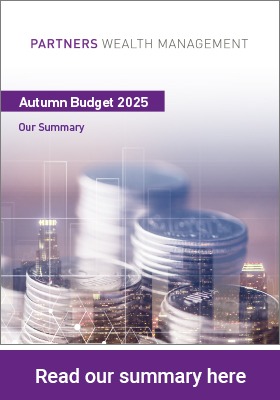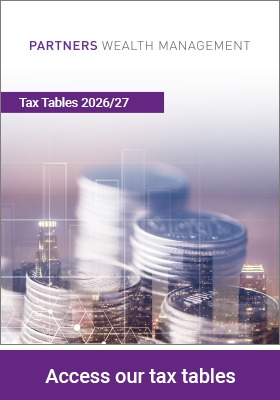Many kites, an OBR leak, and ultimately many reasons to ensure your planning can evolve with ever changing legislation.
Over the last decade or so, every Budget announcement has been preceded with speculation of what might come and a few “leaks” along the way. However, the months ahead of this year’s Budget took this to a new level and almost every week since the Budget date was announced, we witnessed new “kites being flown” on almost every part of the UK tax system, seemingly to test future potential policy before making a commitment. With this background of so much information being tested ahead of time, the unprecedented early release from the OBR ahead of the Budget announcement, was almost unsurprising.
Turning to the announcements, there were a number of changes/freezes, which will have a real impact on individuals’ planning. We have placed detail of this within our Budget summary, and outlined some key considerations below. Notably, suggestions that pension tax-free cash would be reduced or the main rates of income tax increased, did not make it into the final budget.
Income Tax and National Insurance
Whilst no direct increase to income tax rates, the personal tax thresholds will remain frozen until 5 April 2031 for much of the UK (Scotland set their own tax bands and rates separately). This extends the fiscal drag, which means that as incomes rise, more people will move into higher tax bands, increasing overall tax bills.
From April 2026, there will be a 2% increase to the basic and higher rates of tax on dividends and, from April 2027, there will be a 2% increase to the current tax level on basic, higher, and additional rates on savings and property income.
These changes highlight the importance of reviewing your tax position and considering strategies such as pension contributions, which continue to receive tax relief at marginal rates. Also, for married couples where one spouse is in a lower tax band, there could be benefit in considering whether to transfer income-producing assets between them to make the best use of the allowances available.
Pensions
From April 2029, the first £2,000 of salary-sacrificed contributions will remain exempt from National Insurance, but any amount above that level will attract both employer and employee National Insurance. With a long period before this change is implemented, reviewing such contribution strategies early is important.
This does mean that from April 2029, there could be an impact on those utilising salary sacrifice to manage the £100,000 – £125,140 tax trap, which can result in an effective marginal tax rate of up to 60%, on those utilising it to maintain access to childcare benefits.
It was a relief to many that there was no additional pension reforms included in this Budget. This stability will be welcome for many who had concerns over changes to tax-free cash, and it gives individuals the chance to review long-term plans and ensure contributions are optimised under current rules.
Investments
From April 2027 the Cash ISA allowance will be limited to £12,000 for those under 65, but they will be able to use the balance of £8,000 toward Stocks and Shares ISAs. People over 65 can still pay £20,000 into Cash ISAs. All Subscriptions will remain as they are until 2031.
From April 2026 VCT tax relief will be reduced from 30% to 20%, meaning this is the last year that 30% relief is available from these schemes. Details on potential changes to EIS are not yet clear, so we will follow this separately.
Other Brief points
- The Inheritance Tax (IHT) Nil Rate Bands are frozen until 6 April 2031 (they have been frozen since April 2012); the Agricultural and Business Relief allowances are frozen at £1million until 2030/31, but there was a welcome amendment that the spousal exemption will now apply for unused allowances.
- Introduction of a “Mansion Tax” for properties over £2m from April 2028, based on a 2026 valuation, will be implemented on a tiered basis.
- Introduction of an Electric Car mileage based charge from 2028/29, at 3p per mile for electric and 1.5p per mile for plug-in hybrid vehicles.
Planning ahead is key
There were a number of changes from the Budget that will have an impact on individuals. The attached provides more detail on the items highlighted above and the broader Budget announcements as a whole. What is key from the announcements, the freezing of thresholds and the upcoming changes in the years to come, is that having the right plan in place can help you preserve your wealth and grow it as efficiently as possible.
Your Partners Wealth Management team is already taking on board these changes and is ready to assist with any questions or concerns that you might have.
The information and/or any reference to specific instruments contained in this article does not constitute an investment recommendation or tax advice. The contents of the article have been prepared solely for information purposes. The article contains information on financial products and services and such information is designed for and addressed solely to individuals seeking generic industry information. This document reflects our understanding of current legislation. Past performance is no guide to future returns.






